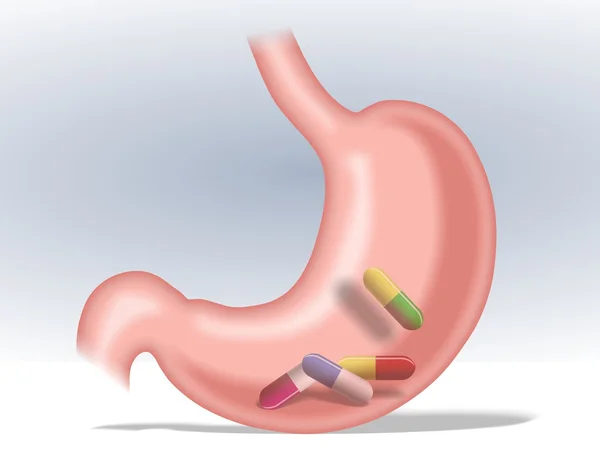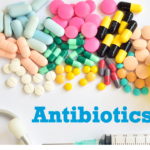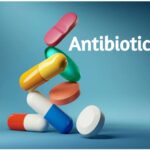Can You Take Antibiotics On An Empty Stomach?

The most popular method of taking medications is orally (by mouth). Depending on what your healthcare provider prescribed, your oral medication can be swallowed, chewed, or placed under your tongue to dissolve.
Medications that you swallow travel from your stomach or intestine into your bloodstream and then are carried to all parts of your body. This process is known as absorption. The speed with which absorption occurs depends on several factors:
• The type of medication you are taking (e.g., liquid or tablet)
• Whether you take your medication with food, after food, or on an empty stomach
• The ability of your medication to pass into your bloodstream (some medications are coated to dissolve more slowly in your stomach)
• Whether your medication interacts with other medications you are taking at the same time
Some orally administered drugs irritate the digestive tract , harm the lining of the stomach and small intestine to potentially cause or aggravate preexisting ulcers. Other drugs are absorbed poorly or erratically in the digestive tract or are destroyed by the acid and digestive enzymes in the stomach.
What Are Antibiotics?
Antibiotics are medicines that help stop infections caused by bacteria. They do this by killing the bacteria or by keeping them from copying themselves or reproducing.
The word antibiotic means “against life.” Any drug that kills germs in your body is technically an antibiotic. But most people use the term when they’re talking about medicine that is meant to kill bacteria.
Before scientists first discovered antibiotics in the 1920s, many people died from minor bacterial infections, like strep throat. Surgery was riskier, too. But after antibiotics became available in the 1940s, life expectancy increased, surgeries got safer, and people could survive what used to be deadly infections.
What Antibiotics Can and Can’t Do
Most bacteria that live in your body are harmless. Some are even helpful. Still, bacteria can infect almost any organ. Fortunately, antibiotics can usually help.
These are the types of infections that can be treated with antibiotics:
• Some ear and sinus infections
• Dental infections
• Skin infections
• Meningitis (swelling of the brain and spinal cord)
• Strep throat
• Bladder and kidney infections
• Bacterial pneumonias
• Whooping cough
• Clostridioides difficile
Only bacterial infections can be killed with antibiotics. The common cold, flu, most coughs, some bronchitis infections, most sore throats, and stomach flu are all caused by viruses. Antibiotics won’t work to treat them. Your doctor will tell you either to wait these illnesses out or prescribe antiviral drugs to help you get rid of them.
How do I use antibiotics correctly?
When you take antibiotics, it is important that you take them responsibly:
• Always follow the directions carefully. Finish your medicine even if you feel better. If you stop taking them too soon, some bacteria may survive and re-infect you.
• Don’t save your antibiotics for later.
• Don’t share your antibiotic with others.
• Don’t take antibiotics prescribed for someone else. This may delay the best treatment for you, make you even sicker, or cause side effects.
Can You Take Antibiotics On An Empty Stomach?
Yes, you can take antibiotics with food or on an empty stomach. However, doctors recommend that you avoid taking some types of antibiotics on empty stomach because of their tendency to irritate the stomach wall, these include doxycycline and amoxicillin. Other antibiotics, such as tetracycline and flucloxacillin work best when taken on an empty stomach.
Generally, it is recommended that you avoid taking dairy products such as milk, yogurt, and cheese because they decrease the absorption of antibiotics. Try to eat meals one to two hours before taking these to avoid this interaction.
Follow the directions on your antibiotics prescription label carefully, and ask your doctor or pharmacist to explain any part you do not understand. Take antibiotics exactly as directed. Do not take more or less of it or take it more often than prescribed by your doctor.
Why is it important to take antibiotics only when they’re needed?
Antibiotics are important to treat infections and have saved countless lives. However, anytime antibiotics are used, they can cause side effects and contribute to antibiotic resistance, one of the most urgent threats to the public’s health.
When antibiotics are needed, the benefits usually outweigh the risks of side effects or antibiotic resistance. However, too many antibiotics are prescribed unnecessarily and misused, which threatens the usefulness of these important drugs.
This is why it’s important that we all use antibiotics ONLY when we need them to protect us from harm caused by unnecessary antibiotic use and to combat antibiotic resistance.
What is unnecessary antibiotic use?
Unnecessary antibiotic use happens when a person is prescribed antibiotics when they’re not needed, such as for colds and flu.
Unnecessary use also happens when a person is prescribed antibiotics for infections that are sometimes caused by bacteria that do not always need antibiotics, like many sinus infections and some ear infections.
Antibiotics aren’t always the answer when you’re sick. It’s important to use antibiotics only when they are needed to protect yourself from harm caused by unnecessary antibiotic use and combat antibiotic resistance.
What is the misuse of antibiotics?
Misuse of antibiotics happens when a person is prescribed
• the wrong antibiotic,
• the wrong dose of an antibiotic, or
• an antibiotic for the wrong length of time.
Talk with your doctor about the best treatment for your illness.





